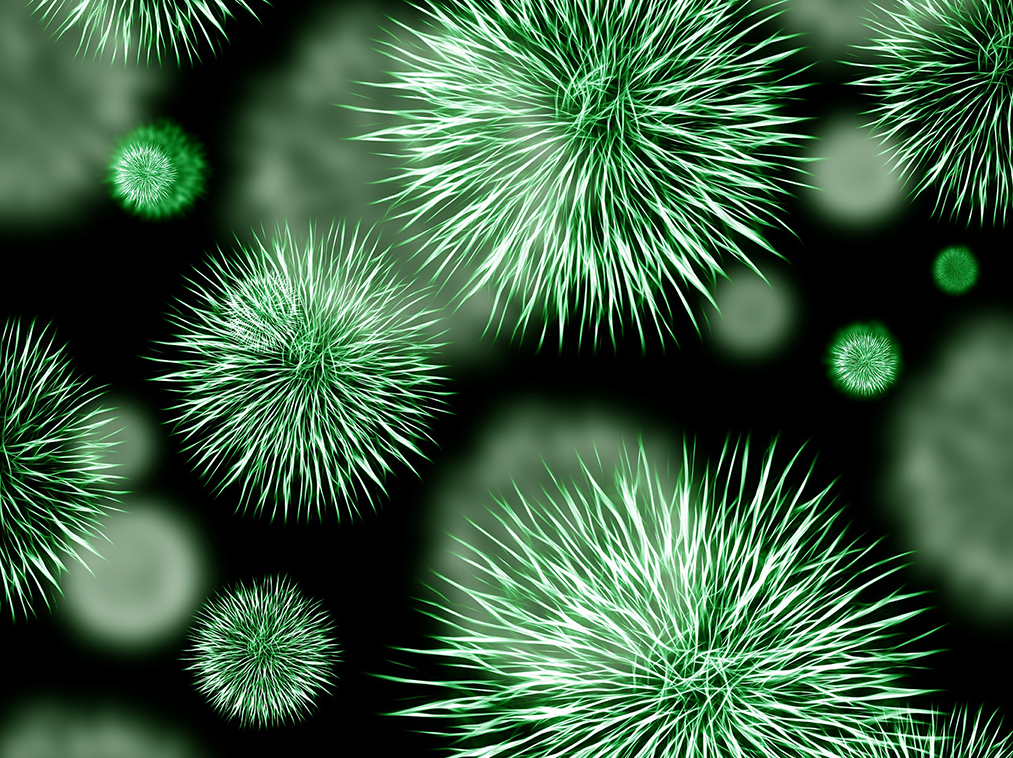Space germs from other planets could pose threat to human immune systems, scientists warn
Amino acids found on meteorites are harder to fight than those on Earth

Just as the Martians in HG Wells’ novel The War of the Worlds are finally slain by “disease bacteria” on Earth, scientists now suggest humans and other mammals could struggle to fight germs from other planets.
Given the right conditions and mixture of elements, it is conceivable that microorganisms such as bacteria and viruses could exist beyond Earth, and there are plans to search for signs of them on Mars and some of Saturn and Jupiter’s moons.
Alien life forms could theoretically be composed of different amino acids to those familiar to us on Earth.
Amino acids are the fundamental organic compounds which form the basis for all life as we know it, and are made up of nitrogen, carbon, hydrogen and oxygen.
Scientists from the universities of Aberdeen and Exeter tested how mammal immune cells responded to peptides containing two amino acids that are rare on Earth but are commonly found on meteorites.
The amino acids “isovaline” and “α-aminoisobutyric acid” were introduced to mice, which have immune systems similar to humans.
They found that those mice’s immune systems responded to the “alien” peptides in a way that was “less efficient” than to germs from this planet.
The research team examined mammalian T cells, which normally work to kill pathogenic bodies, and can recruit other cells to fight off invading diseases.
But when the scientists introduced the amino acids found on the meteorites, the T cell response was less efficient, with activation levels of 15 per cent and 61 per cent – compared to 82 per cent and 91 per cent when exposed to peptides made entirely of amino acids that are common on Earth.
“Life on Earth relies on essential 22 amino acids,” said lead author Dr Katja Schaefer, of the University of Exeter, in a statement. “Our investigation showed that these exo-peptides were still processed, and T cells were still activated, but these responses were less efficient than for ‘ordinary’ Earth peptides.”
“We therefore speculate that contact with extra-terrestrial microorganisms might pose an immunological risk for space missions aiming to retrieve organisms from exoplanets and moons,” Dr Schaefer added.
“The world is now only too aware of the immune challenge posed by the emergence of brand new pathogens,” said Professor Neil Gow, a Deputy Vice-Chancellor at the University of Exeter.
The research will be published in in the journal Microorganisms, with the title, ‘A weakened immune response to synthetic exo-peptides predicts a potential biosecurity risk in the retrieval of exo-microorganisms’.
The discovery of liquid water at several locations in the solar system raises the possibility that microbial life could have [also] evolved outside Earth, and could therefore be accidentally introduced into the Earth’s ecosystem.
The issue of alien germs is a rising priority, as missions to other planets are becoming more common.
The UAE recently launched its first mission to Mars, sending The Hope Probe from Japan for a seven-month journey.
China also sent the “Questions to Heaven” rover for a 90-day exploration of the Red Planet.
Nasa recently gave the Seti Institute a contract to ensure that alien life does not contaminate Earth.
The contract covers the Mars 2020 mission and the Europa Clipper mission, which will send probes to a moon of Jupiter.
Researchers now say there could be more than 30 alien civilisations in our galaxy. That estimation comes from the assumption that life would develop on other planets as it does on Earth.
Scientists than matched the conditions on Earth to other planets that could have similar histories.
“The idea is looking at evolution, but on a cosmic scale. We call this calculation the Astrobiological Copernican Limit,” Christopher Conselice of the University of Nottingham said at the time.
Join our commenting forum
Join thought-provoking conversations, follow other Independent readers and see their replies
Comments
Bookmark popover
Removed from bookmarks